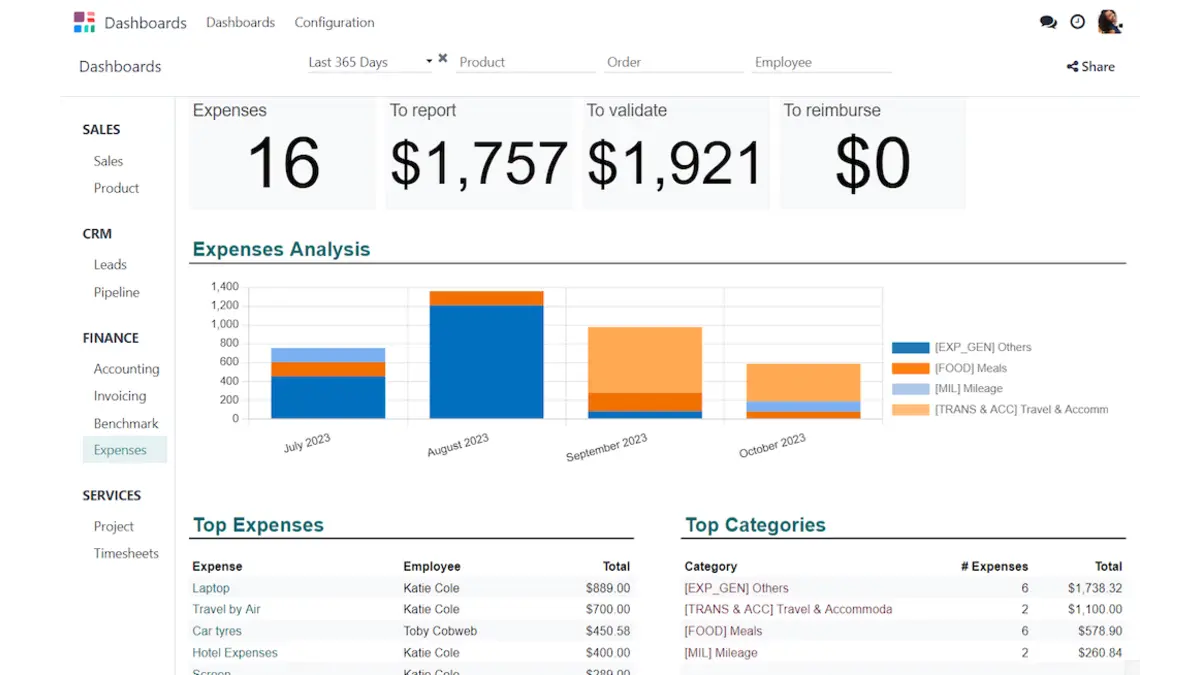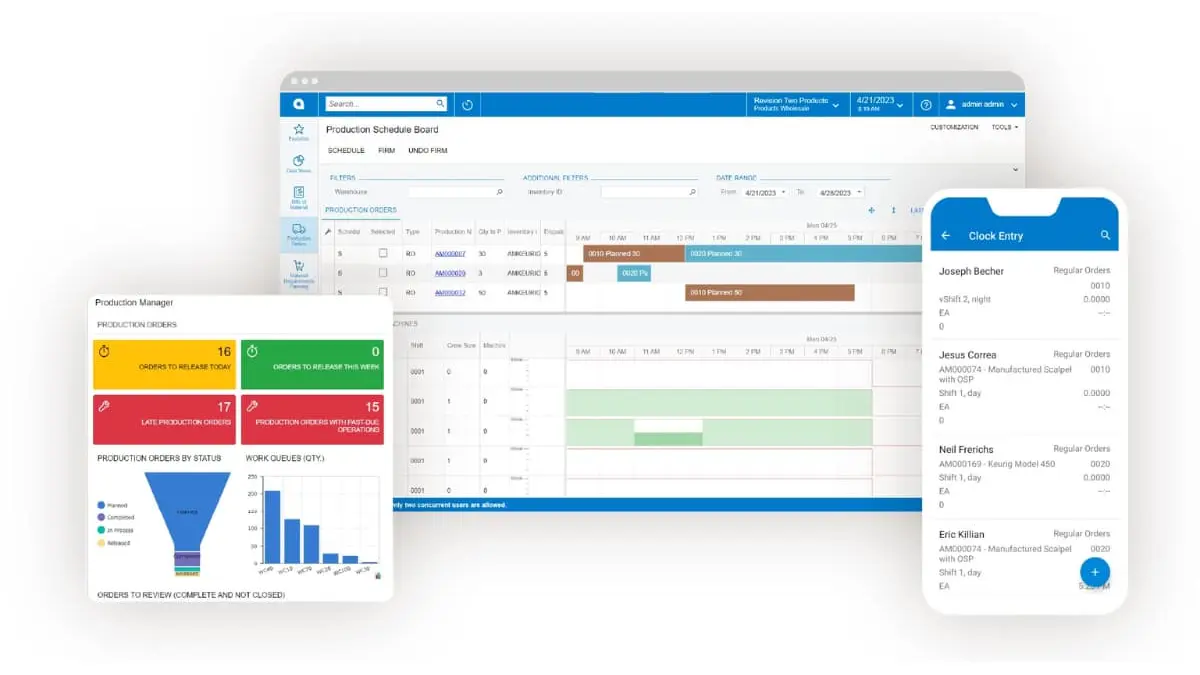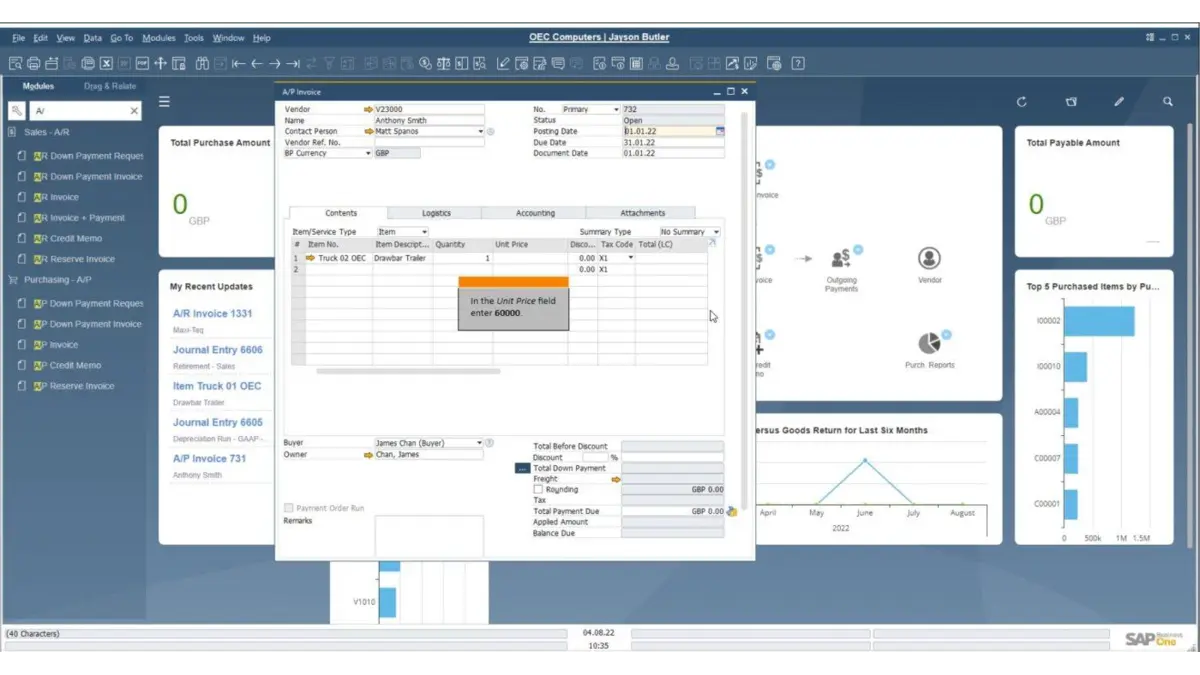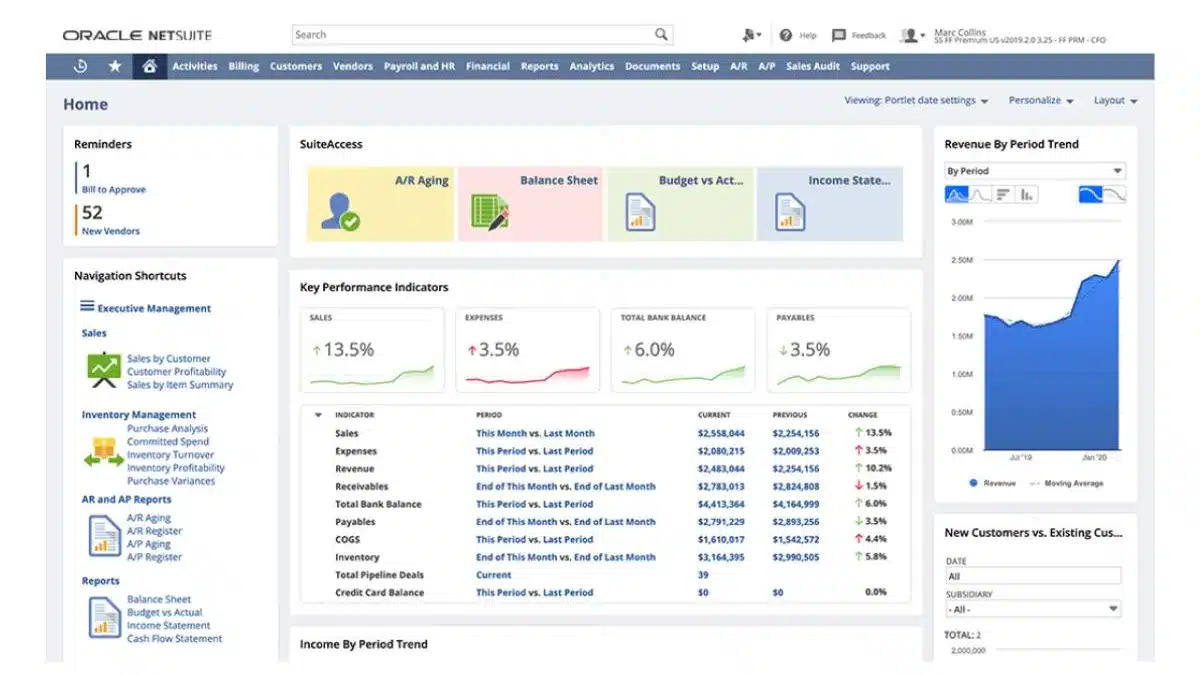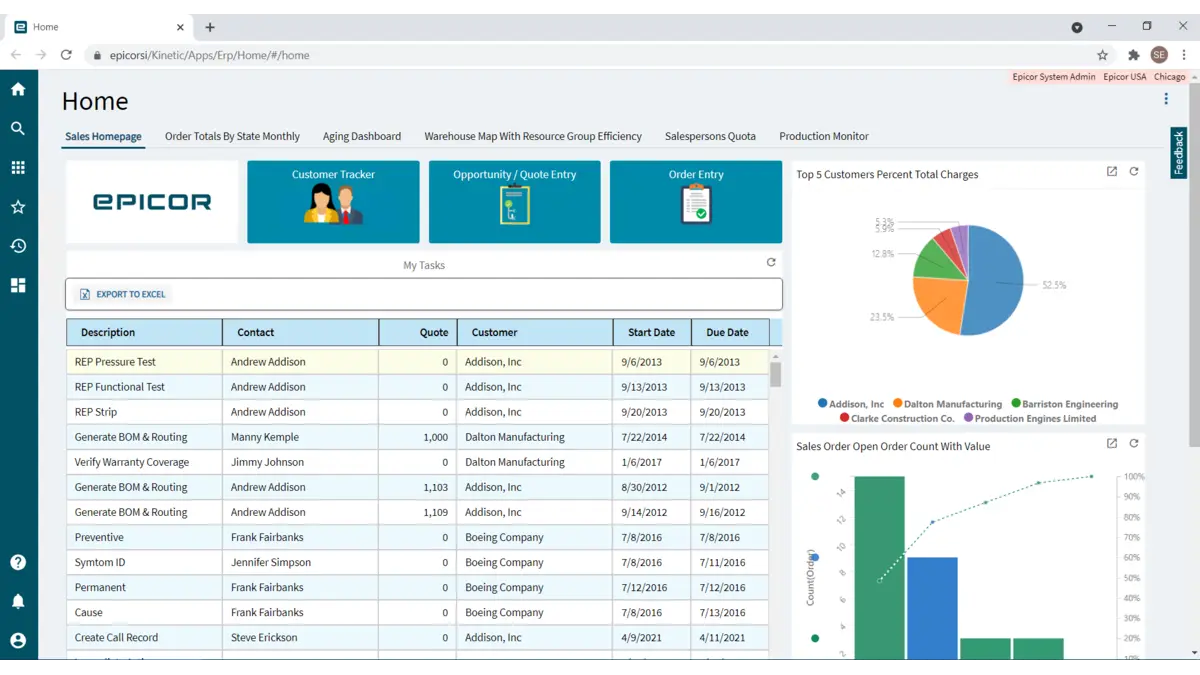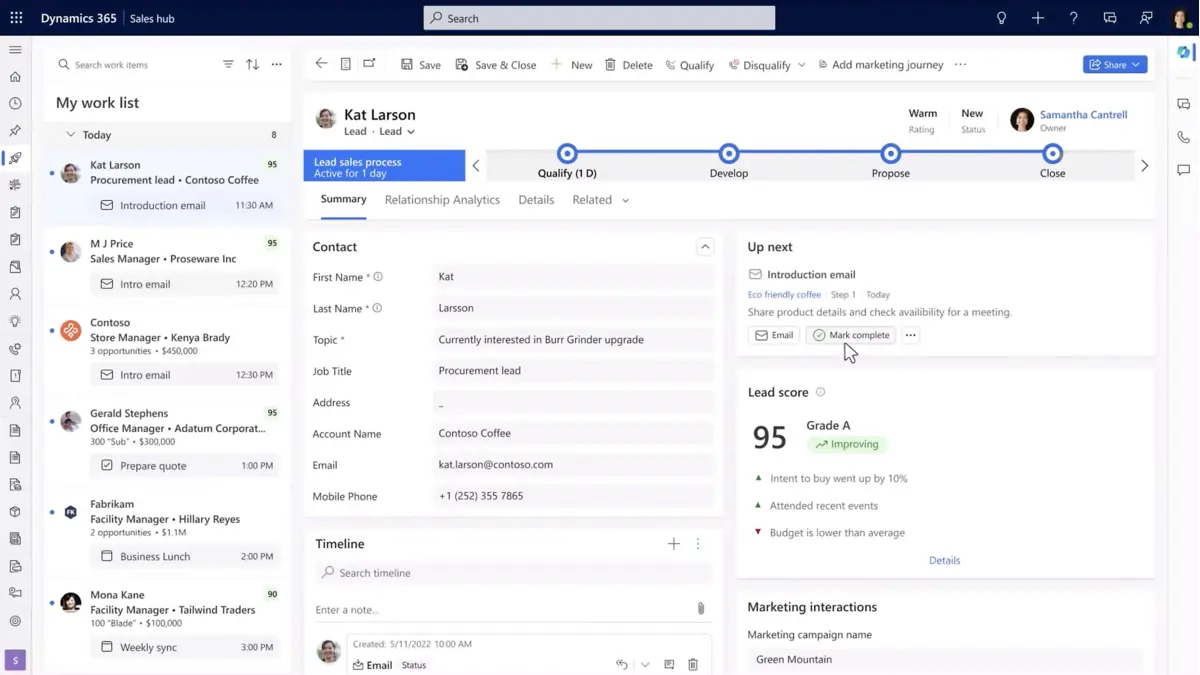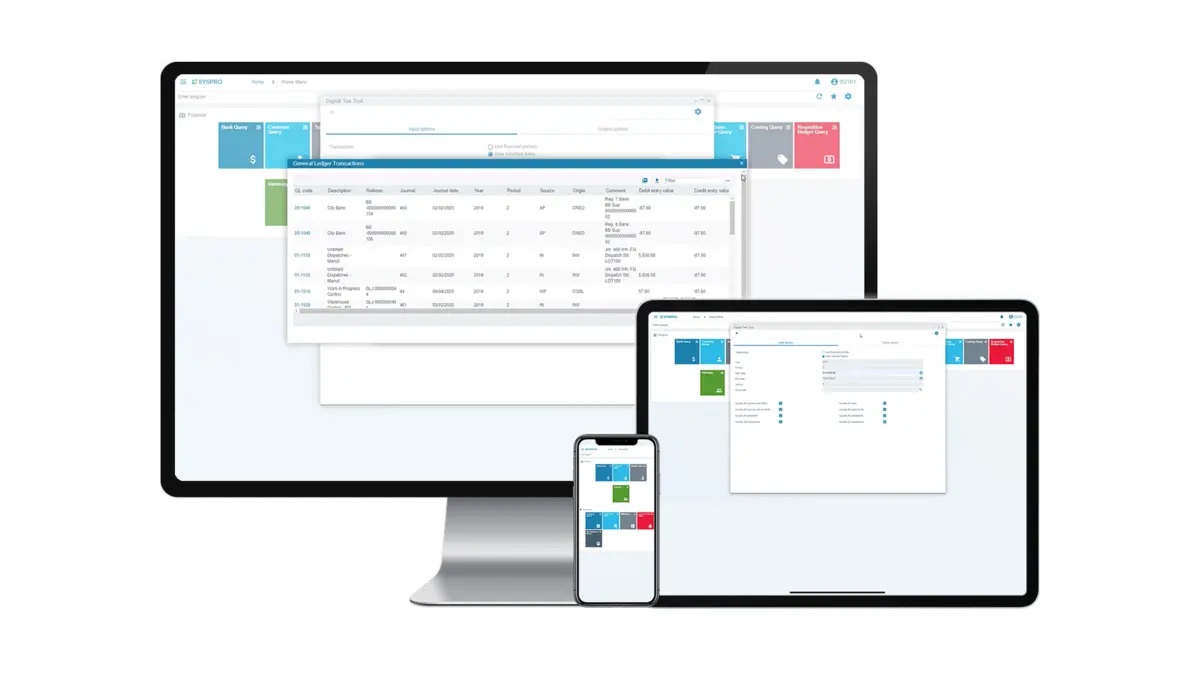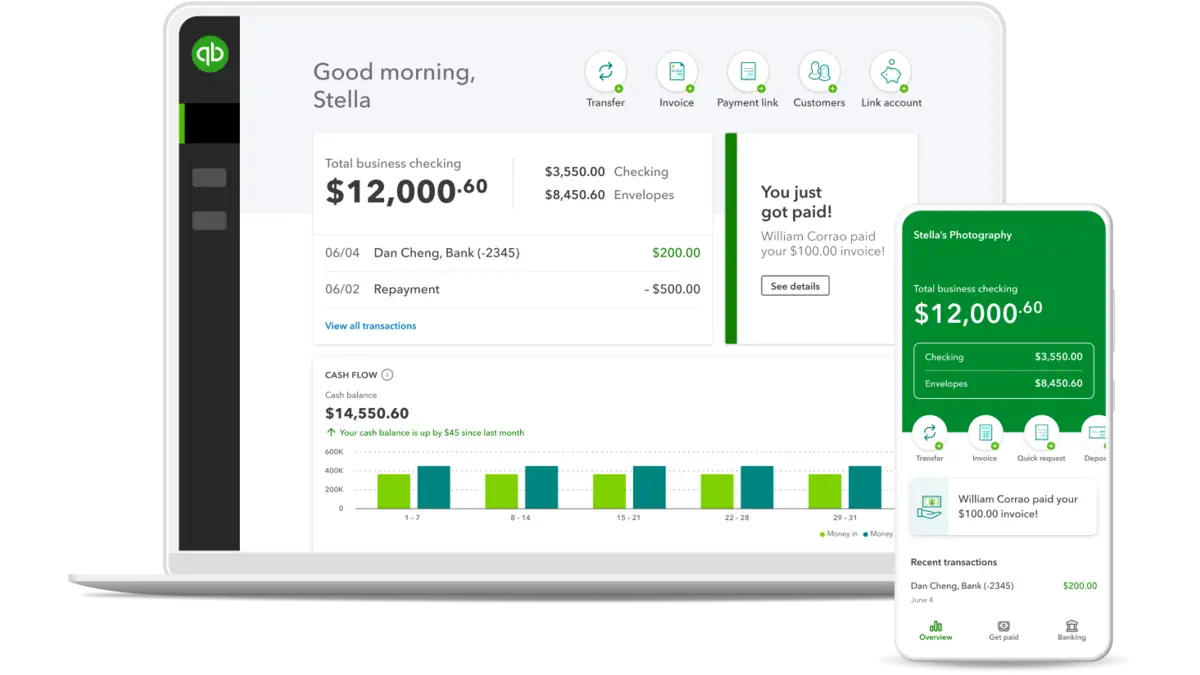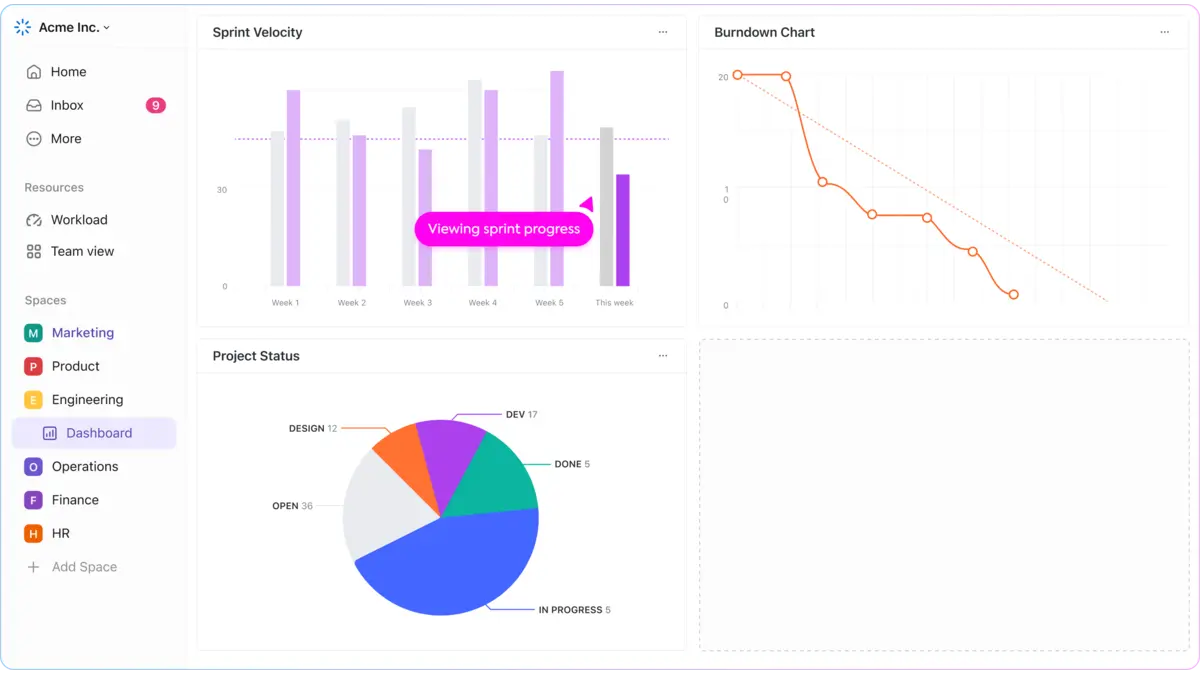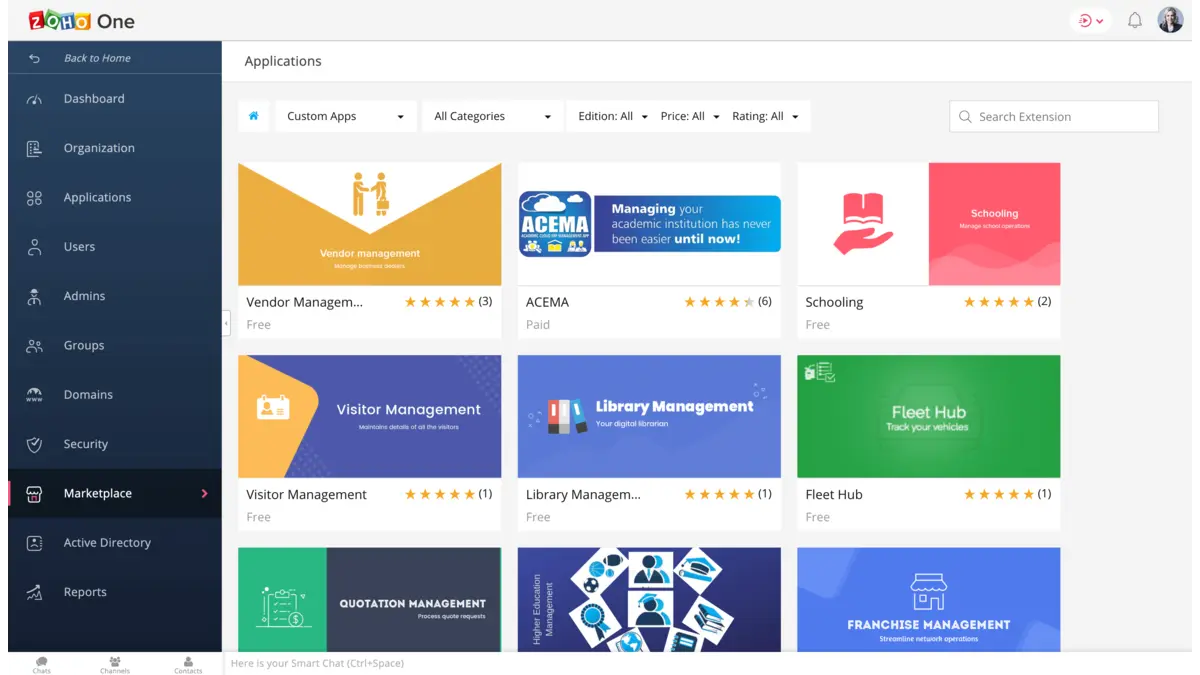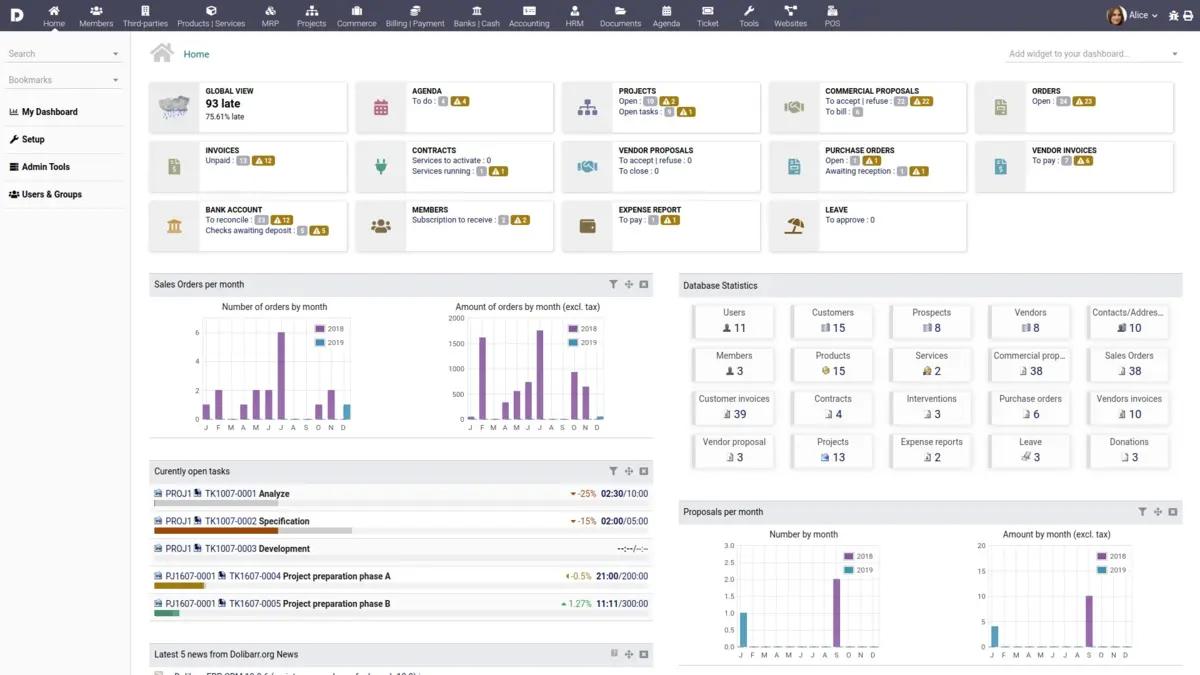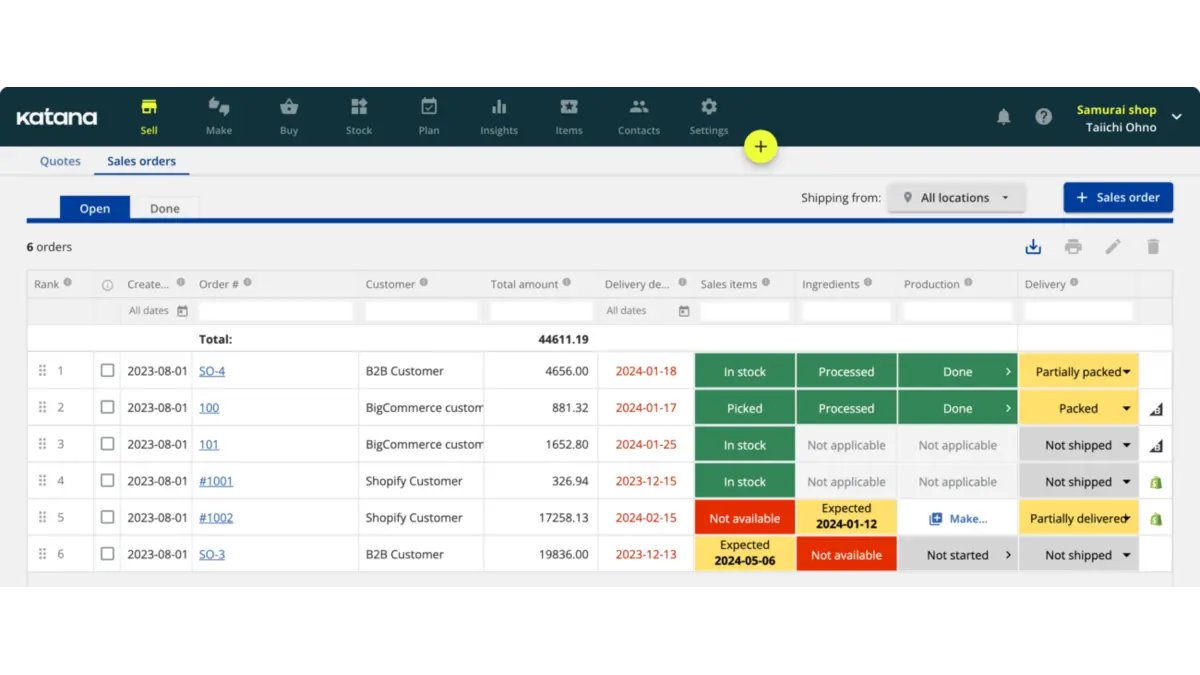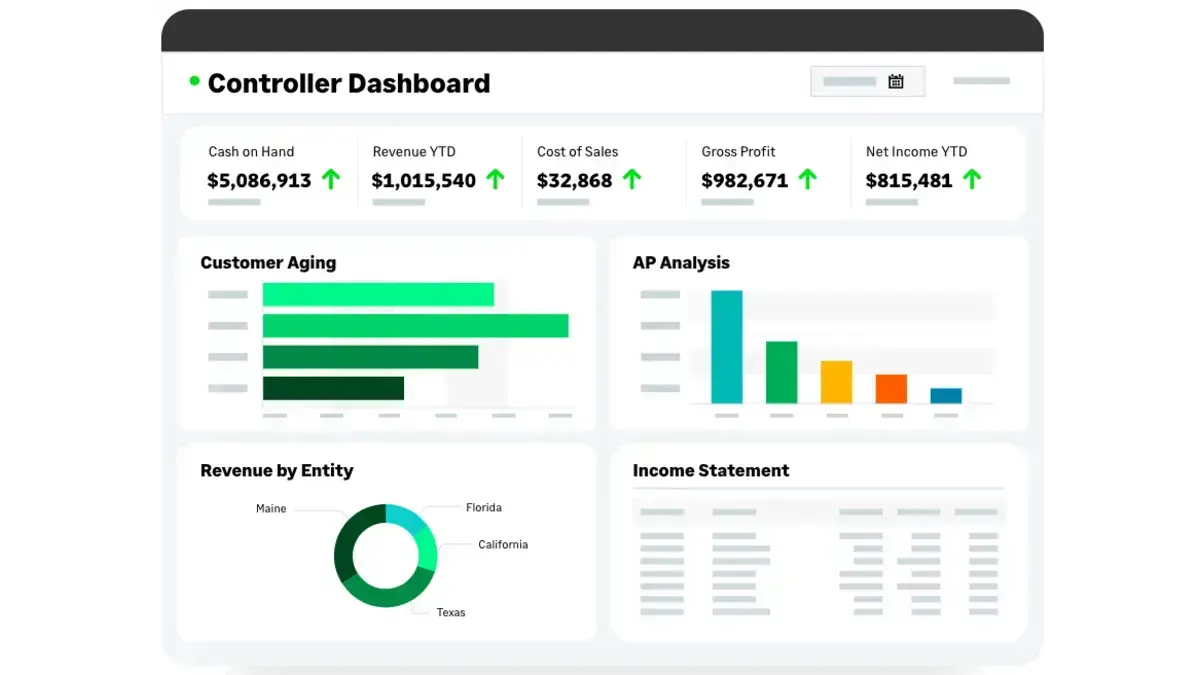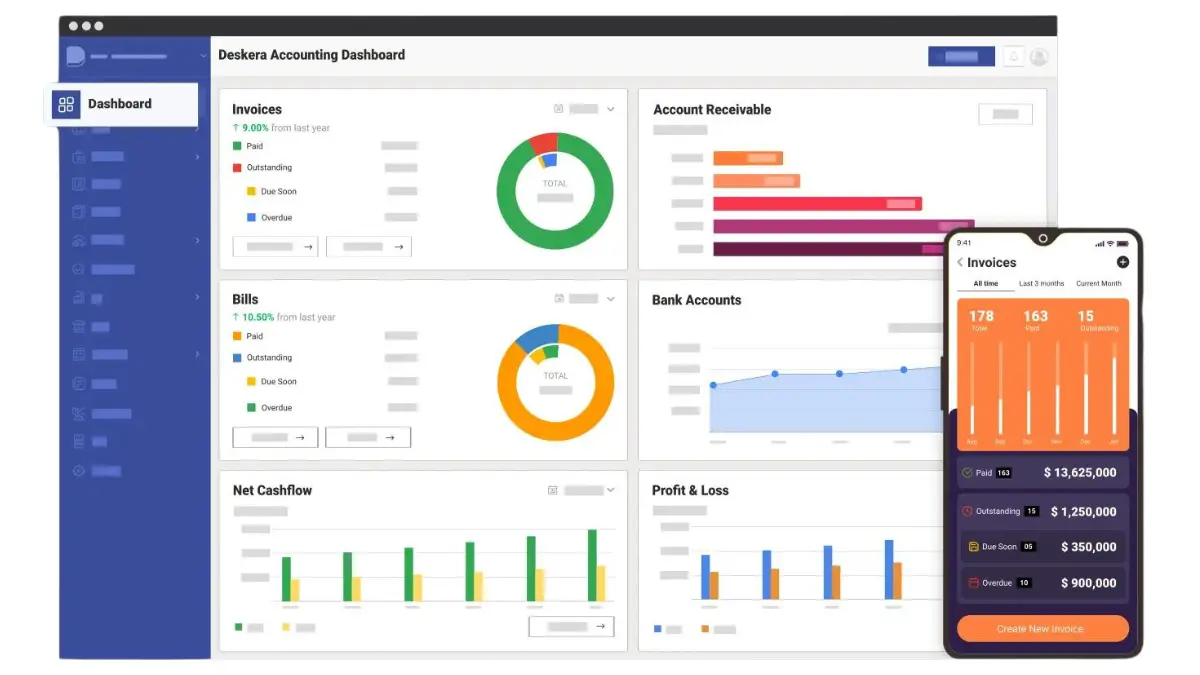In the rapidly evolving business landscape of 2024, choosing the right ERP system is crucial for operational efficiency and growth. One of the most popular choices is Odoo ERP.
With ERP software adoption on the rise, a 2023 report by IDC indicates that 78% of businesses in Singapore are either planning to implement or have already adopted an ERP solution to streamline their operations.
Although Odoo ERP is a well-known and widely used software, the demand for versatile and customizable ERP software highlights the necessity for businesses to explore various Odoo alternatives. Since it may not always align perfectly with every company’s specific requirements, budget constraints, or operational capabilities.
This article aims to guide companies in Singapore in finding the best Odoo alternatives that align with their specific needs, budgets, and capabilities. We will provide you with a comprehensive overview of the top 20 Odoo alternatives and competitors in Singapore.
By examining various Odoo alternatives, you can find a system that not only matches your technical requirements but also enhances your overall business performance.
Table of Content:
Table of Content
Key Takeaways
|
What is Odoo ERP?
Odoo ERP is a modular open-source software suite designed to meet the diverse needs of businesses of all sizes. Initially known as OpenERP, Odoo has grown to offer a comprehensive suite of applications covering various business functions, from CRM to human resources.
One of Odoo’s key strengths lies in its modular architecture, allowing businesses to start with a few essential modules and expand as their needs grow. This flexibility makes Odoo an attractive choice for companies seeking scalable solutions tailored to their unique requirements.
Additionally, Odoo’s open-source nature means that it benefits from a large community of developers and users, continuously contributing to its enhancement and customization capabilities.
With both on-premise and cloud-based deployment options, Odoo ERP provides businesses with the tools they need to streamline operations, improve efficiency, and drive growth.
Odoo: Features, Pros, and Cons
When evaluating whether Odoo ERP is the right system for your business, it’s essential to consider its key features, modules, pros, and cons to make an informed decision. Here is our summary of Odoo’s review to be used as your reference.
Key features:
- Modular structure: Odoo offers a vast range of modules, including CRM, Sales, Inventory, Accounting, HR, and Project Management, allowing businesses to tailor the system to their specific needs.
- Open-source flexibility: The open-source nature of Odoo enables extensive customization and integration with various third-party applications.
- User-friendly interface: Designed with a focus on usability, Odoo provides an intuitive and accessible interface that enhances productivity.
- Comprehensive reporting: Odoo’s powerful reporting tools offer real-time insights into business performance, aiding in strategic decision-making.
- Cloud and on-premise options: Businesses can choose between cloud-based and on-premise deployments, providing flexibility based on their preferences and infrastructure.
Pros:
- Scalability: Odoo’s modular approach ensures that the system can grow alongside your business, adding new functionalities as needed.
- Customizability: The ability to customize modules and workflows means Odoo can be tailored to fit unique business processes.
- Active community: A large and active user community offers valuable support, resources, and shared experiences to help you maximize the system’s potential.
- Seamless integration: Odoo supports integration well with various external applications, ensuring smooth and efficient business operations.
Cons:
- Implementation complexity: The extensive customization options can lead to a complex and time-consuming implementation process.
- Support limitations: While the community is active, official support can sometimes be limited, potentially requiring additional investment in third-party support services.
- Steep learning curve: New users may find the system challenging to master initially, necessitating thorough training and adaptation time.
- Performance issues: Some users have reported performance issues with larger datasets or complex customizations.
- Hidden costs: Although Odoo is cost-effective, the expenses for customization, third-party integrations, and support can add up, affecting the overall budget.
In conclusion, Odoo ERP offers a flexible and scalable solution with a range of features suitable for many businesses. However, it’s crucial to weigh Odoo’s pros and cons against your specific requirements and resources to determine if it’s the right fit for your organization.
Do You Need Odoo Alternatives?
While Odoo is a powerful and versatile ERP solution, it may not suit every business’s unique needs. If you find Odoo’s implementation complexity, customization challenges, or support limitations daunting, exploring Odoo alternatives might be beneficial.
Businesses with less technical expertise might prefer ERP systems with more straightforward setups and user-friendly interfaces.
Additionally, if your organization requires more specialized industry-specific features or more robust customer support, Odoo alternatives like HashMicro, SAP, or Oracle NetSuite could offer a better fit.
Consider your business size, budget, and specific requirements when evaluating alternatives. If performance issues or hidden costs are a concern, researching other best ERP software options could save you time and resources in the long run.
Ultimately, finding an ERP system that aligns with your company’s goals and operational needs is crucial for optimizing efficiency and growth. Don’t hesitate to explore various Odoo alternatives to ensure you choose the best ERP for your business.
Top 15 Odoo Alternatives and Competitors in Singapore 2024
If you’ve decided that Odoo might not be the best fit for your business, it’s time to explore the landscape of Odoo alternatives.
These Odoo alternatives can offer varying strengths in terms of ease of implementation, customization options, and industry-specific features, providing you with the flexibility to choose a solution that aligns perfectly with your business needs.
In this section, we’ll dive into the top 15 Odoo alternatives and competitors in Singapore, offering a comprehensive look at the leading ERP solutions available.
1. HashMicro ERP system
HashMicro ERP software is a comprehensive solution designed to streamline and optimize business operations for medium to large enterprises. As an excellent alternative to Odoo ERP, HashMicro stands out with its robust and standardized system architecture that ensures full regulatory compliance.
This ERP vendor offers you free demo access, allowing you to explore the software’s comprehensive features firsthand. This opportunity provides you with an in-depth understanding of the system’s capabilities without any commitment.
HashMicro’s customizable and highly scalable ERP system allows businesses to tailor the software to their specific needs, ensuring seamless integration with existing processes and promoting efficient coordination between various business systems.
Key features:
- Real-time reporting: Generate real-time reports on sales, customer behavior, inventory levels, and financial performance.
- Inventory management: Optimize stock levels, prevent stockouts or overstock, and automate inventory tracking.
- Financial management: Comprehensive tools for managing financial operations, including budgeting, forecasting, and financial reporting.
- Procurement management: Streamline procurement processes with automated purchasing and vendor management.
- HR and payroll: Manage employee records, attendance, payroll processing, and compliance with local labor laws.
- Customer relationship management (CRM): Enhance customer engagement with integrated CRM tools for sales, marketing, and customer service.
- Supply chain management: Improve supply chain efficiency with tools for demand planning, order fulfillment, and logistics management.
Pros:
- User-friendly interface: Users can navigate the features and modules easily due to the system’s intuitive and modern design.
- Customizable and scalable: HashMicro’s ERP system can be tailored to meet the unique requirements of different businesses, ensuring scalability as the business grows.
- Regulatory compliance: The software ensures full compliance with local and international regulations, reducing the risk of legal issues.
- User-friendly interface: The intuitive interface makes it easy for users to navigate and utilize the software’s features effectively.
- Comprehensive support: HashMicro offers excellent customer support, including training, implementation assistance, and ongoing technical support.
- Integration capabilities: Seamlessly integrates with various third-party applications, enhancing overall business efficiency.
- Mobile accessibility: Access and update your data anytime and anywhere you go in real time.
Cons:
- Implementation time: The amount of time needed for system implementation could vary depending on how complex and how many features the business needs.
- Variety of features: With so many features and complex functionalities, this software might not be suitable for businesses who are looking for a simple solution.
You can also download HashMicro’s detailed software price scheme to estimate your budget accurately for software implementation. This comprehensive pricing guide will help you understand the costs involved and plan your financial resources effectively.
2. Acumatica
Acumatica ERP is a robust, cloud-based enterprise resource planning solution designed to help businesses streamline their operations and improve efficiency. Known for its user-friendly interface and flexible deployment options, Acumatica stands out as one of the strongest alternatives to Odoo ERP.
Unlike Odoo, which can sometimes be complex and overwhelming for users, Acumatica offers a more intuitive and seamless experience, making it easier for businesses to manage their accounting, financials, inventory, and more.
Key features:
- Financial management: Comprehensive accounting tools including general ledger, accounts payable, accounts receivable, and cash management.
- Project accounting: Manage project costs, budgets, and time sheets with real-time visibility.
- Inventory management: Optimize stock levels and track inventory in real-time.
- Customer relationship management (CRM): Integrated CRM to manage sales and customer service.
- Business intelligence (BI): Advanced analytics and reporting tools for data-driven decision-making.
- Order management: Streamline order processing and track sales orders from creation to fulfillment.
Pros:
- User-friendly interface: Acumatica’s clean and intuitive interface reduces the learning curve for new users.
- Flexible deployment: Choose between cloud, on-premises, or hybrid deployment options to suit your business needs.
- Scalability: Easily scalable to grow with your business, from small to large enterprises.
- Real-time data: Access to real-time information for better decision-making.
- Strong customer support: Highly rated customer service with extensive resources and community support.
Cons:
- Cost: Acumatica can be more expensive than some other ERP solutions, particularly for smaller businesses.
- Customization complexity: While highly customizable, the process can be complex and may require professional assistance.
- Implementation time: The initial setup and implementation can take longer compared to some competitors.
- Third-party integration: Limited integration options with some third-party applications compared to more established ERP systems.
3. SAP Business One
SAP Business One is a powerful ERP solution designed specifically for small and medium-sized enterprises (SMEs).
Unlike Odoo ERP, which offers a modular approach, SAP Business One provides an all-in-one solution that seamlessly integrates various business processes. This integration ensures a unified and streamlined approach to managing your business operations.
With SAP Business One, businesses can benefit from real-time insights, robust analytics, and enhanced decision-making capabilities, all tailored to meet the unique needs of SMEs.
Key features:
- Financial management: Comprehensive financial management tools, including accounting, banking, and reconciliation.
- Sales and customer management: End-to-end sales and service management, from initial contact to final sale and after-service support.
- Inventory and distribution: Real-time inventory tracking, warehouse management, and efficient distribution processes.
- Purchasing and procurement: Streamlined procurement processes with integrated supplier management and order tracking.
- Reporting and analytics: Advanced reporting tools and dashboards that provide real-time insights and analytics.
- Project management: Tools to manage projects, track progress, and monitor budgets and costs.
- Manufacturing and production: Integrated production planning and control, including bill of materials and resource management.
Pros:
- Comprehensive integration: SAP Business One integrates various business processes into a single platform, providing a holistic view of operations.
- Scalability: Easily scalable to grow with your business, accommodating more users and additional functionalities as needed.
- Real-time insights: Provides real-time data and analytics, enhancing decision-making and operational efficiency.
- Customizable: Highly customizable to fit the specific needs and workflows of your business.
- Robust support: Backed by SAP’s extensive support network, ensuring reliable assistance and continuous improvement.
- Mobile access: Mobile applications for accessing SAP Business One functionality on the go.
Cons:
- Cost: Higher initial and ongoing costs compared to some competitors, which might be a consideration for smaller businesses.
- Complexity: Can be complex to implement and may require dedicated IT resources for setup and maintenance.
- Training: Requires extensive training for users to fully leverage all features and functionalities.
- Customization time: Customizations can be time-consuming and may require professional services.
- Hardware requirements: Higher hardware and infrastructure requirements compared to some cloud-based solutions.
4. Oracle NetSuite
Oracle NetSuite is a leading ERP software that offers a robust and comprehensive solution for businesses seeking to streamline their operations and enhance productivity.
Unlike Odoo ERP, which is known for its modularity and open-source flexibility, Oracle NetSuite provides an all-in-one cloud-based solution that is highly scalable and integrated.
It caters to businesses of all sizes, delivering a unified platform for financial management, CRM, e-commerce, inventory management, and more. Its real-time data access and advanced analytics make it a superior choice for businesses aiming for growth and efficiency.
Key features:
- Financial management: Comprehensive tools for accounting, financial planning, and reporting.
- CRM: Integrated customer relationship management for better customer insights and interactions.
- E-commerce: Seamless integration with e-commerce platforms to manage online sales and inventory.
- Inventory management: Real-time inventory tracking and automated replenishment processes.
- Order management: Streamlined order processing from sales to fulfillment.
- HR management: Tools for payroll, employee management, and performance tracking.
Pros:
- Scalability: Can grow with your business, supporting small startups to large enterprises.
- Comprehensive suite: Offers an all-in-one solution with integrated modules covering all business aspects.
- Real-time data: Provides real-time visibility into business performance with powerful analytics.
- User-friendly: Intuitive interface and easy-to-use navigation for all users.
- Cloud-based: Access your business information from anywhere, anytime with cloud deployment.
Cons:
- Cost: Higher initial and ongoing costs compared to some other ERP solutions like Odoo.
- Complexity: Can be complex to implement and may require professional assistance.
- Customization: Limited customization options compared to open-source solutions like Odoo.
- Learning Curve: Steeper learning curve for new users, especially for non-technical staff.
- Support: Support can be slow at times and might require additional investment for premium support options.
5. Epicor Kinetic
Epicor Kinetic is a robust ERP software designed to streamline operations, boost productivity, and improve business performance. As a leading alternative to Odoo ERP, Epicor Kinetic offers a comprehensive suite of tools tailored for manufacturers, distributors, and service organizations.
Its user-friendly interface and customizable modules make it an ideal choice for businesses seeking an efficient and scalable solution. With a focus on advanced manufacturing capabilities, Epicor Kinetic helps companies achieve operational excellence and drive growth.
Key features:
- Advanced MES: Provides real-time production monitoring and control.
- Supply chain management: Ensures efficient management of the supply chain from end to end.
- Financial management: Offers comprehensive financial planning, budgeting, and reporting tools.
- Customer relationship management: Enhances customer interactions and relationship management.
- Human capital management: Manages employee lifecycle from recruitment to retirement.
- Business intelligence and analytics: Provides actionable insights through robust data analysis tools.
Pros:
- Customization and flexibility: Highly customizable to meet specific business requirements.
- Scalable solution: Scales with your business, accommodating growth and changes in operations.
- Comprehensive features: Wide range of modules covering all aspects of business management.
- Industry-specific solutions: Tailored for various industries, especially manufacturing and distribution.
Cons:
- Complex implementation: Initial setup and implementation can be time-consuming and complex.
- High cost: This can be expensive, especially for small businesses or startups.
- Learning curve: Requires significant training for users to fully utilize its features.
- Occasional performance issues: Some users report occasional slow performance, especially with large datasets.
6. Microsoft Dynamics 365
Microsoft Dynamics 365 is a powerful ERP and CRM solution designed to streamline business operations and enhance customer engagement.
As one of the strongest alternatives to Odoo ERP, Dynamics 365 offers seamless integration with other Microsoft products like Office 365, Azure, and LinkedIn, providing a unified platform for business management.
With its robust functionalities, Dynamics 365 caters to businesses of all sizes, offering flexible deployment options—cloud, on-premise, or hybrid.
Key features:
- Financial management: Advanced tools for general ledger, accounts payable and receivable, fixed assets, and cash flow management.
- Supply chain management: Real-time visibility into inventory, procurement, and logistics.
- Sales and marketing automation: Comprehensive tools for managing customer relationships, sales pipelines, and marketing campaigns.
- Human resources: Modules for talent management, payroll, and workforce planning.
- Project management: Tools for planning, tracking, and analyzing project performance.
Pros:
- Integration with Microsoft ecosystem: Seamlessly integrates with Microsoft Office 365, Azure, and other Microsoft tools.
- Scalability: Highly scalable, suitable for small businesses to large enterprises.
- User-friendly interface: Intuitive interface that enhances user experience and productivity.
- Advanced analytics: Built-in AI and machine learning capabilities for advanced data analytics.
- Flexible deployment: Options for cloud, on-premise, and hybrid deployments to suit different business needs.
Cons:
- Cost: Higher upfront and ongoing costs compared to some competitors, making it less ideal for very small businesses.
- Complexity: Can be complex to implement and require significant customization for specific business needs.
- Training requirement: A steeper learning curve requires adequate training for users to fully utilize the system.
- Performance issues: Occasionally, users report performance lags, particularly in large-scale implementations.
- Dependency on Microsoft ecosystem: Heavy reliance on Microsoft products, which might be a drawback for businesses using a diverse range of software solutions.
7. Syspro
Syspro is a robust ERP software solution designed specifically for manufacturers and distributors. It stands out as a powerful alternative to Odoo ERP, especially for businesses seeking deep industry-specific functionalities and seamless integration capabilities.
This vendor offers a comprehensive suite of tools that cater to various business needs, including accounting, inventory management, supply chain management, and production planning.
Key features:
- Financial management: Comprehensive financial modules covering general ledger, accounts payable/receivable, and cash management.
- Inventory management: Advanced tools for tracking inventory levels, optimizing stock, and managing warehouses.
- Production planning: Efficient scheduling, resource planning, and manufacturing execution systems.
- Supply chain management: End-to-end supply chain visibility and optimization, from procurement to distribution.
- CRM integration: Seamless customer relationship management integration for better sales and service management.
Pros:
- Industry-specific solutions: Tailored for manufacturers and distributors, offering deep functionality for these sectors.
- User-friendly interface: Intuitive and easy-to-navigate interface, reducing the learning curve for new users.
- Scalability: Flexible and scalable to grow with your business, accommodating expanding operations.
- Comprehensive support: Extensive customer support and training resources to ensure smooth implementation and usage.
- Customization: Highly customizable to fit specific business needs and workflows.
Cons:
- Cost: Higher upfront costs compared to some other ERP solutions, which might be a consideration for small businesses.
- Customization time: Customizations can take significant time and effort to implement effectively.
- Update frequency: Infrequent updates might lag behind some newer ERP systems in terms of cutting-edge features.
- Integration challenges: Integrating with certain third-party applications may require additional configuration or customization.
8. ERPNext
ERPNext is an open-source ERP software that offers a comprehensive suite of applications to help manage your business processes efficiently.
Designed for small to medium-sized businesses, ERPNext is an excellent alternative to Odoo ERP, providing similar functionalities with a user-friendly interface and flexible customization options.
Key features:
- Accounting module: Automates and manages financial transactions, including invoicing, payments, and tax calculations.
- Inventory management: Tracks stock levels, automates reordering, and manages warehouse operations.
- Human resources: Handles employee records, payroll, attendance, and performance appraisals.
- Sales and purchase management: Manages sales orders, purchase orders, and vendor/customer relationships.
- Project management: Helps in planning, executing, and monitoring project progress.
- CRM: Manages customer interactions, leads, and sales opportunities.
- Manufacturing module: Streamlines production planning, job cards, and work orders.
Pros:
- Customizable: The platform offers extensive customization options to tailor the system to your specific business needs.
- User-friendly interface: Easy to navigate, which reduces the learning curve for new users.
- Comprehensive features: Covers all essential business processes, providing an all-in-one solution.
Cons:
- Limited third-party integrations: Compared to Odoo, ERPNext has fewer integrations with third-party applications.
- Community support: While the community is active, the support can sometimes be inconsistent or slower compared to paid support options.
- Scalability issues: May face challenges when scaling up for very large enterprises.
- Technical expertise required: Customization and advanced usage might require some technical knowledge or hiring a developer.
9. Intuit Quickbooks
Intuit QuickBooks is a leading accounting software solution, particularly suitable for small to medium-sized businesses. It provides a comprehensive suite of tools designed to simplify financial management and improve business efficiency.
As one of the strongest alternatives to Odoo ERP, QuickBooks stands out with its user-friendly interface, extensive feature set, and seamless integration capabilities. While Odoo offers a more modular and customizable ERP system, QuickBooks excels in delivering a robust accounting platform that is straightforward to implement.
Key features:
- Automated invoicing: Create and send professional invoices automatically.
- Expense tracking: Monitor and categorize expenses to maintain accurate financial records.
- Inventory management: Track inventory levels, sales, and purchase orders in real-time.
- Payroll management: Manage employee payroll, including tax calculations and direct deposits.
- Financial reporting: Generate detailed financial reports, such as profit & loss statements and balance sheets.
- Bank reconciliation: Reconcile bank transactions with ease, ensuring accurate financial records.
- Sales tax calculation: Automate sales tax calculations and ensure compliance.
Pros:
- User-friendly interface: Intuitive design makes it easy for users to navigate and utilize the software effectively.
- Comprehensive feature set: Offers a wide range of features that cater to various accounting needs.
- Seamless integration: Integrates with numerous third-party applications, enhancing its functionality.
- Cloud-based access: Accessible from anywhere, allowing for remote work and real-time updates.
- Reliable customer support: Provides extensive support resources, including live chat, phone support, and a knowledge base.
Cons:
- Limited customization: Less flexible compared to more customizable ERP systems like Odoo.
- Higher pricing: Compared to Odoo, the pricing of this software can be expensive, especially for small businesses with limited budgets.
- Learning curve: Initial setup and learning phase can be time-consuming for new users.
- Occasional sync issues: Some users report difficulties with bank feed synchronization.
- Feature overload for small businesses: This may offer more features than necessary for very small businesses, leading to potential underutilization.
10. ClickUp
ClickUp is a versatile ERP software solution that stands out as a robust alternative to Odoo ERP. Known for its comprehensive project management capabilities, ClickUp offers an all-in-one platform that integrates seamlessly with various business operations.
It’s designed to streamline workflows, enhance collaboration, and improve productivity, making it an excellent choice for businesses looking to optimize their processes.
Key features:
- Task management: Efficiently create, assign, and track tasks with customizable views (list, board, calendar, Gantt).
- Time tracking: Built-in time tracking tools to monitor work hours and project progress.
- Reporting and analytics: Generate detailed reports and analytics to track performance and make data-driven decisions.
- Custom dashboards: Personalized dashboards to visualize key metrics and project statuses.
- Document management: Centralized document storage with collaborative editing and version control.
Pros:
- Highly customizable: Offers a wide range of customization options to tailor workflows and processes to specific business needs.
- User-friendly interface: Intuitive and easy-to-navigate interface suitable for users of all technical skill levels.
- Comprehensive features: Provides a complete suite of tools for project management, time tracking, and collaboration, all in one platform.
- Strong support and community: Extensive resources, tutorials, and a supportive user community to help with onboarding and troubleshooting.
Cons:
- Steep learning curve: Due to its extensive features, new users might find it overwhelming and require time to fully grasp its capabilities.
- Performance issues: Some users report occasional lag or slow performance, especially with large projects or heavy usage.
- Limited offline access: Lacks robust offline functionality, which can be a drawback for remote teams or areas with unstable internet connections.
- Feature overload: The abundance of features might lead to complexity and unnecessary distractions for users who only need basic functionalities.
- Customization complexity: While customization is a strength, it can also become complex and time-consuming to set up and manage effectively.
11. Zoho One
Zoho One is a comprehensive ERP software suite designed to streamline various business operations seamlessly. Positioned as one of strong Odoo alternatives, Zoho One offers an integrated approach to managing multiple business functions from a single platform.
This software is tailored for small to medium-sized enterprises seeking an all-in-one solution to enhance productivity and efficiency. Zoho One’s user-friendly interface and affordable pricing make it a compelling choice for businesses looking to transition from fragmented systems to a cohesive ERP solution.
Key features:
- Accounting and finance: Automates accounting processes, manages invoices, and tracks expenses effortlessly.
- CRM: Comprehensive customer relationship management to boost sales and customer engagement.
- HR management: Streamlines employee onboarding, payroll, and performance reviews.
- Project management: Advanced tools for project planning, tracking, and collaboration.
- Inventory management: Efficiently manages stock levels, purchase orders, and inventory tracking.
- Analytics and reporting: Real-time insights with customizable dashboards and detailed reports.
- Email marketing: Integrated tools for creating, sending, and tracking email campaigns.
- Collaboration tools: Facilitate team communication with Zoho Cliq and Zoho Meeting.
Pros:
- Comprehensive suite: Offers a wide range of applications to cover various business needs under one roof.
- User-friendly interface: Intuitive design makes it easy for users to navigate and utilize the software effectively.
- Customization: Highly customizable to fit specific business processes and workflows.
- Integration capabilities: Seamlessly integrates with third-party applications and other Zoho products.
Cons:
- Complexity for small businesses: The extensive features might be overwhelming for very small businesses with simple needs.
- Learning curve: Some users may find the initial setup and learning phase challenging.
- Mobile app limitations: Certain functionalities might be limited or less intuitive on the mobile app compared to the desktop version.
- Performance issues: Occasional slowdowns or glitches, especially during high-traffic periods.
12. Dolibarr
Dolibarr ERP is a versatile and user-friendly open-source software solution designed to streamline business operations, making it one of the excellent Odoo alternatives.
This software caters to small and medium-sized enterprises, offering a wide array of features that support various business functions such as accounting, inventory management, sales, and human resources.
Unlike Odoo, which can be complex and requires extensive customization, Dolibarr’s simplicity and straightforward setup process make it a preferred choice for businesses seeking a hassle-free ERP implementation.
Key features:
- Accounting and finance management: Comprehensive tools for managing invoices, payments, and financial reports.
- Customer relationship management: Effective management of customer interactions and sales processes.
- Inventory management: Real-time tracking of stock levels, orders, and suppliers.
- Human resources: Modules for employee management, attendance tracking, and payroll processing.
- Project management: Tools for planning, tracking, and executing projects efficiently.
- E-commerce integration: Seamless integration with various e-commerce platforms for streamlined operations.
Pros:
- User-friendly interface: Intuitive and easy-to-navigate interface, suitable for users with limited technical knowledge.
- Modular structure: Allows businesses to enable only the modules they need, making it highly customizable.
- Active community support: A strong community of developers and users contributes to continuous improvements and support.
Cons:
- Limited advanced features: This may lack some of the advanced features and functionalities available in more comprehensive ERP solutions.
- Scalability issues: While suitable for small to medium-sized businesses, it may not scale as efficiently for very large enterprises.
- Customization complexity: Although customizable, significant customization may require technical expertise.
- Support variability: This relies heavily on community support, which can vary in response time and quality.
- Integration challenges: May face challenges integrating with some third-party applications compared to more established ERPs.
13. Katana MRP
Katana MRP is an innovative manufacturing ERP software designed specifically for small and medium-sized businesses.
Unlike Odoo ERP, which offers a broad range of modules for various business needs, Katana MRP focuses on delivering a highly specialized solution for manufacturers.
Its intuitive interface and real-time master planning capabilities make it a standout choice for businesses looking to streamline their production processes and inventory management.
Key features:
- Real-time inventory management: Automatic inventory updates ensure accurate stock levels and reduce the risk of stockouts or overstocking.
- Production planning: Visual and intuitive production planning tools help manage workflows and optimize manufacturing processes.
- Shop floor control: Real-time shop floor control allows tracking of production progress and worker activities.
- Bill of materials (BOM) management: Efficiently manage and customize BOMs to meet production requirements.
- Batch tracking: Track inventory batches with expiration dates and traceability to ensure quality control.
- Sales order management: Automate sales order processing and track order fulfillment in real-time.
Pros:
- User-friendly interface: Katana MRP offers an intuitive and easy-to-navigate interface, reducing the learning curve for new users.
- Real-time updates: Provides instant updates on inventory and production statuses, enhancing decision-making and operational efficiency.
- Customizable: Highly customizable to fit the specific needs of different manufacturing processes and workflows.
- Integration: Robust integration options with popular e-commerce, accounting, and shipping platforms streamline various business processes.
- Cost-effective: Offers a competitive pricing structure, making it accessible for small to medium-sized businesses.
Cons:
- Limited to manufacturing: While excellent for manufacturing, it may lack the breadth of functionalities needed for businesses in other industries.
- Scalability issues: May not scale as efficiently for very large enterprises with complex manufacturing requirements.
- Mobile app limitations: The mobile app is not as fully featured as the desktop version, which might limit on-the-go management.
- Integration challenges: While integrations are robust, setting them up can sometimes be complex and require technical expertise.
14. Sage Intacct
Sage Intacct is a highly trusted cloud-based ERP solution known for its powerful financial management and accounting capabilities. As one of excellent Odoo alternatives, particularly for businesses that require robust financial reporting and automation.
This software stands out with its advanced features tailored to meet the needs of finance professionals. Its scalability and flexibility make it ideal for growing businesses, and it seamlessly integrates with other critical business applications.
Key features:
- Multi-entity management: Easily manage multiple entities, currencies, and international operations from a single platform.
- Advanced financial reporting: Customizable reports and dashboards provide real-time financial insights.
- Automated billing: Streamline billing processes with automation for different pricing models and billing schedules.
- Project accounting: Track project costs, budgets, and profitability with precision.
- Comprehensive budgeting and planning: Collaborative budgeting tools for detailed financial planning and analysis.
- Role-based dashboards: Personalized dashboards for different roles, providing relevant insights and metrics.
- Expense management: Efficient expense tracking and reporting, integrated with corporate cards and reimbursement processes.
Pros:
- User-friendly interface: An intuitive and easy-to-navigate interface enhances user experience and reduces training time.
- Scalability: Suitable for businesses of all sizes, from startups to large enterprises, with scalable features.
- Strong financial controls: Provides robust internal controls and audit trails, ensuring compliance and security.
- Customizable reporting: Highly customizable reporting tools that cater to specific business needs and regulatory requirements.
- Real-time data: Access to real-time financial data for better decision-making and improved financial performance.
Cons:
- Pricing: This can be relatively expensive for small businesses or startups with limited budgets.
- Complex implementation: The initial setup and implementation process can be complex and time-consuming.
- Limited non-financial modules: Primarily focused on financial management, with fewer features for non-financial aspects of business management.
- Learning curve: Some users may experience a steep learning curve due to the comprehensive nature of the software.
- Customization limitations: While highly customizable, some advanced customizations may require technical expertise or third-party assistance.
15. Deskera
Deskera ERP software is a comprehensive solution designed to streamline various business processes, including accounting, inventory management, CRM, and HR.
Known as one of good Odoo alternatives, Deskera offers a user-friendly interface with robust functionalities tailored for small to medium-sized businesses. Its cloud-based platform ensures accessibility from anywhere, making it a versatile choice for modern enterprises.
Key features:
- Accounting management: Automated bookkeeping, invoicing, and financial reporting.
- Inventory management: Real-time tracking of stock levels, orders, and deliveries.
- CRM: Integrated customer relationship management for enhanced sales and marketing.
- HR and payroll: Comprehensive HR management, including payroll processing and employee records.
- Project management: Tools for planning, tracking, and executing projects efficiently.
Pros:
- User-friendly interface: Intuitive design makes it easy for users to navigate and utilize the software.
- All-in-one solution: Combines multiple business functions into a single platform, reducing the need for multiple software tools.
- Cloud-based flexibility: Accessible from anywhere with internet access, enhancing mobility and remote work capabilities.
- Scalable: Suitable for businesses of all sizes, with features that grow alongside the company’s needs.
- Comprehensive support: Offers extensive customer support and training resources.
Cons:
- Customization limits: While it offers many features, some users find it less customizable compared to other ERP solutions like Odoo.
- Pricing: This can be on the higher end, which might be a barrier for very small businesses or startups.
- Integration challenges: Some users report difficulties integrating Deskera with existing third-party applications.
- Performance issues: Occasional performance lags, particularly with large datasets or complex operations.
Conclusion
Odoo ERP is a robust solution offering a wide range of accounting features, making it a popular choice for many businesses. However, its pros and cons highlight that it may not be the perfect fit for everyone.
When considering top Odoo alternatives and competitors in Singapore, it’s crucial to evaluate each option’s features, implementation complexity, and support capabilities.
Among these alternatives, HashMicro’s ERP software stands out with its comprehensive features, user-friendly interface, and exceptional customer support.
HashMicro offers a tailored and scalable solution that can adapt to your business’s unique needs, ensuring seamless integration and optimal performance.
Don’t miss the opportunity to experience the benefits of HashMicro’s ERP system firsthand. Access the free demo now and discover how it can transform your business operations, enhance efficiency, and drive growth. Make the informed choice and take your business to the next level with HashMicro.
FAQ about Odoo Alternatives
-
Why should businesses consider HashMicro as an alternative to Odoo?
HashMicro is a highly customizable and scalable ERP solution, designed to meet the unique requirements of businesses in Singapore. It offers real-time reporting, advanced analytics, and seamless integration with other business systems.
HashMicro’s ERP system is also known for its compliance with local regulations and its ability to streamline business processes efficiently. With its user-centric design and robust support, HashMicro provides a reliable and efficient alternative to Odoo.
-
How does HashMicro compare to other ERP systems like Oracle NetSuite and Microsoft Dynamics 365?
While Oracle NetSuite and Microsoft Dynamics 365 are well-known for their global reach and extensive features, HashMicro offers a more localized solution that caters specifically to the needs of Singaporean businesses.
HashMicro provides similar functionalities such as inventory management software, financial reporting, and CRM, but with added benefits like local customer support and compliance with Singapore’s regulatory standards.
-
What are the key features of HashMicro’s ERP system that make it a strong competitor to Odoo?
Key features of HashMicro’s ERP system include advanced inventory management, real-time financial reporting, seamless integration with other software, and a user-friendly interface.
Additionally, HashMicro offers specialized modules for different business functions, such as human resources, CRM, and supply chain management. The system’s flexibility and scalability make it suitable for businesses of all sizes, providing a tailored solution that grows with the business.
-
What industries can benefit most from using HashMicro instead of Odoo?
HashMicro’s ERP system is versatile and can be tailored to various industries including retail, manufacturing, distribution, and professional services. Its modular design allows businesses to pick and choose the features that best suit their operational needs.
Retail businesses, for example, can benefit from HashMicro’s comprehensive inventory and POS systems, while manufacturing firms can utilize its robust production planning and control modules.





